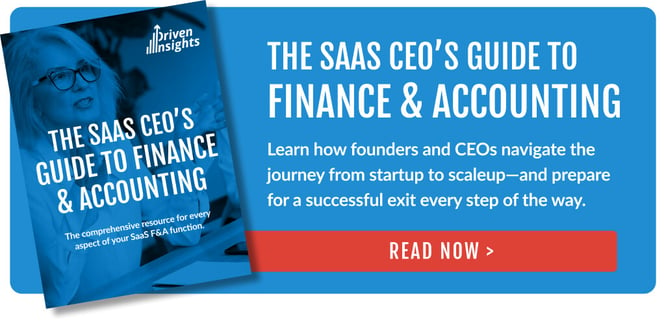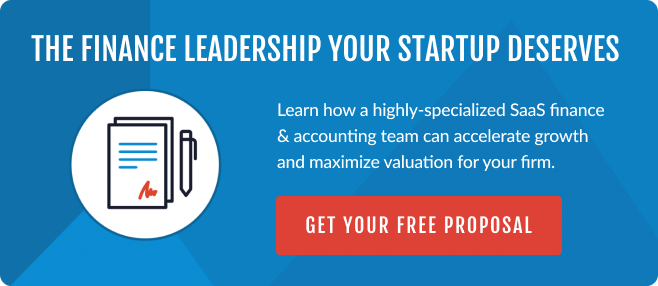
Venture capital (VC) and private equity (PE) are among the most common sources of SaaS equity funding, but which is the right choice for your company? Understanding the unique advantages and drawbacks of each is a great place to start. While PE and VC share some common themes, there are also fundamental differences in their approaches, requirements, and goals.
It’s a delicate balancing act. Raising much-needed SaaS capital can accelerate growth, but it often comes at the expense of owners’ equity. We understand the pressures you’re under—from quantifying your cash needs, presenting your SaaS metrics through seeking out the best investment partners, to securing capital at the right time with the right terms.
This article will help you compare venture capital and private equity options, identify the best choice for your SaaS business, and prepare you to navigate the fundraising process.
Similarities Between SaaS Venture Capital and Private Equity
Before we get into differences between venture capital and private equity, let’s explore some similarities.
Both types of investors are looking for:
- A substantial return on investment, with VCs seeking higher returns than PE firms.
- An exceptional SaaS management team with a track record of growing businesses and successful exits.
- An expected holding period of anywhere between five and twelve or more years.
- Effective strategies for deploying SaaS capital.
- Internal alignment on the right organizational and departmental KPIs.
- Confident analysis of SaaS metrics through flawless financials.
- A large, growing addressable market
Despite similarities between venture capital and private equity investors, it’s important to stress a key point: All VC and PE firms are different. There’s a wide range of risk appetites, sector and stage preferences, expected returns, and other criteria, which means that a “typical” investor can be difficult to define.
Next, let’s take a look at the differences between venture capital and private equity for SaaS companies.
SaaS Growth Stages: When to Consider Venture Capital vs. Private Equity
Venture capital firms generally invest in early stage SaaS businesses with the potential for rapid growth. VCs have a higher tolerance for risk, but the degree will vary. In some cases, a pre-revenue startup will be attractive. In others, paying customers and recurring revenue may be necessary.
Private equity firms generally prefer more established SaaS businesses. PE investors look for milestones like proven cash flow and a sales process working at scale.
Equity Dilution: Venture Capital vs. Private Equity for SaaS Startups
Private equity firms frequently want a majority stake (more than 50%) in a SaaS business, although some will be comfortable with a minority stake if the risk profile isn’t too high. PE funds will often insist that remaining members of the management team retain a material portion of their equity stake or roll it over into the acquiring company so they continue to have skin in the game.
With venture capital, equity can vary widely, often between 25% to 50% or more. Multiple VC investing rounds will have an even greater dilutive impact and can cause swings in ownership. Each round can lead to big opportunities for both value creation (minimized dilution) or destruction so having the right guidance at each stage is critical.
Investment Returns: What SaaS Venture Capital and Private Equity Firms Expect
Both types of investors measure the profitability of their investments using the Internal Rate of Return (IRR), which quantifies the annualized return on invested dollars. Venture capital firms are taking on more risk and seek a higher IRR than private equity investors. VCs will look for an IRR of at least 30%, while PEs often target an IRR of 20% to 30%. Of course, you often hear of investors targeting 10X or higher returns, but due to the high level of failure of portfolio companies, a 30% IRR across the portfolio is a common hurdle rate.
When a SaaS Business Should Seek Out Venture Capital Investment
Your SaaS business will benefit from venture capital if:
- You’re seeking growth capital and guidance, especially during earlier growth stages.
- Time to market or pace of growth is critical to your success. For example, if the market window of opportunity will close or a competitor could quickly displace you.
- You have validated product / market fit and a repeatable sales process, and need capital to scale.
Common VC investment criteria include:
- A product that is many times better, cheaper, or different from alternatives.
- A product with a large, growing market with a proven need.
- A credible go-to-market strategy.
- A path to profitability with a track record of hitting key milestones, such as a product roadmap and some level of paying customers.
When a SaaS Business Should Seek Out Private Equity Investment
Your SaaS business will benefit from private equity if:
- You need growth capital to accelerate growth or guidance and expertise on expanding into new areas such as growing your product line or entering a new marketplace.
- You want partial liquidity so you can fuel the next level of growth, while preserving an equity stake to reap future rewards—or you want to fully exit and your SaaS firm is a great fit for a financial buyer.
Common PE investment criteria include:
- Stable historical cash flow that is also predictable on a forward-looking basis for paying down debt and funding growth
- Strong barriers to entry and no single competitor that owns the market.
- A large, addressable marketplace.
- $10 million or more Annual Recurring Revenue (ARR), although there are some boutique PE firms with an appetite for as low as $5 million ARR.
Private Equity and Venture Capital are Not Your Only Choices for SaaS Funding
Both PE and VC require that SaaS business founders give up some ownership of the business and future returns. While VC and PE are popular options for big cash injections at critical SaaS growth stages, it’s important to consider fundraising alternatives that won’t dilute your equity.
We’ve already covered SaaS funding sources in some detail, but to summarize funding options, you can:
- Use existing working capital from cash flow and cash reserves in your SaaS business.
- Approach existing founders, friends, or family members for additional capital.
- Secure loans from banks and senior lenders.
- Get loans from subordinated and venture debt lenders.
- Raise equity from angel investors, venture capital funds, or private equity firms.
Clearly, there are many considerations, risks, and rewards attached to each funding option. We recommend reading “A Guide to Small Business Funding Sources for Growth” to understand more.
How to Make Your Business More Attractive to Private Equity or Venture Capital Investors
A solid understanding of venture capital and private equity is the first step in choosing the right funding path for your SaaS business. But, positioning your firm for a strong SaaS capital raise often needs something more—SaaS financial expertise and experience with PE and VC funding.
If you're new to the VE/PC game, or just can't afford to take your eye off operations, find a partner who understands the value drivers and other key factors SaaS investors care about most. A partner who can help with the nuances of scaling a SaaS business. Fundraising is about much more than just money—it’s often about finding the right source with the lowest possible cost of capital while gaining access to additional resources and expertise.
To help prepare your business for a VC or PE raise, the right partner can lead, guide, and support your SaaS business in a variety of ways, including:
- Minimizing ownership dilution.
- Seeking out the right combination of funding sources and how they fit into a larger capitalization strategy.
- Building and screening potential investor lists.
- Crafting your fundraising story and supporting it with robust KPIs and value drivers.
- Leading the due diligence process.
- Seeking multiple term sheets to boost investor competition.
- Managing all aspects of communications, reporting, SaaS metrics, coaching, and engagement.
Most importantly, they can lead, guide, support, and minimize the immense distraction that fundraising and ongoing stakeholder management can become.
If deep support for your finance and accounting functions, including SaaS capital raises, sounds like the right fit for your business, choosing the right partner is a critical decision. Schedule an introduction to Driven Insights today, get a free, custom proposal and learn how we accelerate growth for firms just like yours.








